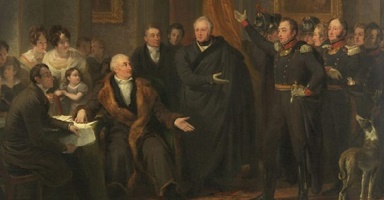What is vulgar knowledge?
We explain what vulgar knowledge is, its differences with other types of knowledge, characteristics and examples.
-
What is vulgar knowledge?
It is known as vulgar knowledge, pre-scientific knowledge or naive knowledge to those ways of knowing that arise from direct and superficial interaction with the objects of reality . It can also arise from the opinion of the people around us.
In both cases, it is constructed without mediating any method or system of validation, analysis or rational demonstration. It is a type of empirical knowledge , accessible to all people equally, depending on the environment in which they live.
The Greek philosopher Plato (427-347 BC) was the first to formulate the distinction between vulgar knowledge ( doxa ) and formal or scientific knowledge ( episteme ). Already then there was a need for some legitimization of knowledge, which allowed to distinguish between informed or educated opinions, from wild and ordinary ones, especially in matters that were of vital importance.
Therefore, vulgar knowledge is distinguished from other demonstrable, rational forms of knowledge because it does not apply any method, demonstration or validation system to achieve its results. It is only based on an opinion, on a feeling or on the repetition of (what has been understood of) something that has been heard there.
Therefore, there is no guarantee that this type of knowledge is true or not, although it may well serve to provide solutions to immediate, concrete and individual problems.
-
Characteristics of vulgar knowledge
The term vulgar in this context does not mean rude, but popular, because it comes from vulgus , a term of Latin origin that simply means “common.” It is a type of knowledge “not specialized” or “not formed” , in a natural or wild state.
Due to its origin and lack of method , this type of knowledge is usually:
- Superficial , because it lacks tools to go beyond the apparent or what the senses can perceive.
- Subjective , it is based on personal, emotional positions, far from a formal analytical character.
- Uncritical , because it does not use a validation system to support itself.
- Social , because it is based on the popular and on sharing one’s own and other people’s life experiences.
-
Examples of vulgar knowledge

Some examples of vulgar knowledge are:
- The sayings , which usually have some kind of teaching expressed through metaphors , parables or stories, but that involve a certain social “common sense.”
- Pseudosciences , which are false or half interpretations (when not overtly manipulative) of other more complex scientific knowledge.
- Prejudices , which sometimes come from the transmission from generation to generation, without authorship and without being based on the direct experience of the individual.
-
Differences with scientific knowledge
Vulgar knowledge is shared by everyone, within the community in which it makes life. On the contrary, scientific knowledge is handled only in academic, specialized or school areas , which are not freely accessible to anyone, partly because they require training or initiation to be fully understood.
This leads us to the second important distinction: scientific knowledge is testable, demonstrable and reproducible , since it adheres to a critical and universal method : the scientific method . Vulgar knowledge lacks method, need for demonstration and any form of systematicity, since it is not a form of organized knowledge.
-
Other types of knowledge
Other forms of knowledge are:
- Scientific knowledge . Use the scientific method to test the different hypotheses that arise from the observation of reality . Its objective is to demonstrate through experiments what are the laws that govern the universe .
- Empirical knowledge . It comes from direct experience, repetition or participation, without requiring an approximation to the abstract, but from the things themselves.
- Philosophical knowledge . It follows fromhuman thought , in the abstract. Use logical or formal reasoningmethods. It is not always clear directly from reality, but from the imaginary representation of the real.
- Intuitive knowledge . The one that is acquired without a formal reasoning, quickly and unconsciously, the result of often inexplicable processes.
- Religious knowledge . Study the link between the human being and the divine and is usually based on dogmas.





